Filter by

Food Security and Food Safety for the Twenty-First Century
This book is a collection of selected papers that were presented at the First International Conference of the Asia-Pacific Society for Agricultural and Food Ethics (APSAFE 2013), which was held at Chulalongkorn University from November 28 – 30, 2013. The papers are interdisciplinary, containing insights into food security and food ethics from a variety of perspectives, including, but not limi…
- Edition
- -
- ISBN/ISSN
- 978-981-287-417-7
- Collation
- XI, 333 hlm.
- Series Title
- -
- Call Number
- -
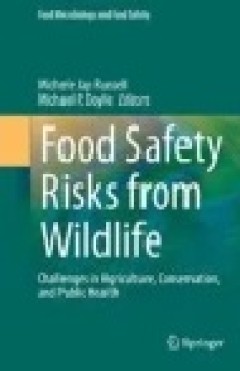
Food Safety Risks From Wildlife: Challenges in Agriculture, Conservation, and…
Foodborne illnesses caused by zoonotic pathogens associated with wildlife hosts are an emerging microbial food safety concern. Transmission of foodborne pathogens can occur through ingestion, or improper handling, of contaminated game meat. Wild and feral animals have also been investigated as potential sources of Campylobacter, Escherichia coli O157:H7 and other enteric pathogens following foo…
- Edition
- -
- ISBN/ISSN
- 978-3-319-24442-6
- Collation
- XII, 254 hlm.
- Series Title
- Food Microbiology and Food Safety
- Call Number
- -

Food Safety = Behavior: 30 Proven Techniques to Enhance Employee Compliance
This book helps in Achieving food safety success which requires going beyond traditional training, testing, and inspectional approaches to managing risks. It requires a better understanding of the human dimensions of food safety. In the field of food safety today, much is documented about specific microbes, time/temperature processes, post-process contamination, and HACCP–things often called …
- Edition
- -
- ISBN/ISSN
- 978-1-4939-2489-9
- Collation
- XIII, 115 hlm.
- Series Title
- Food Microbiology and Food Safety
- Call Number
- -
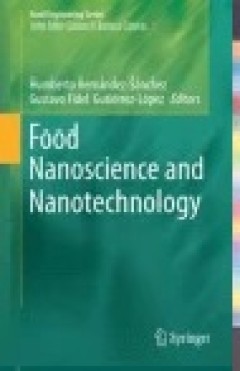
Food Nanoscience and Nanotechnology
Nanoscience and nanotechnology have had a great impact on the food industry. They have increased the nutritional and functional properties of a number of food products and have aided in food preservation through the addition of antimicrobials or the reduction of water activity. These and many other applications have emerged in recent years to transform food science and technology. This book pro…
- Edition
- -
- ISBN/ISSN
- 978-3-319-13596-0
- Collation
- XVIII, 300 hlm.
- Series Title
- Food Engineering Series
- Call Number
- -
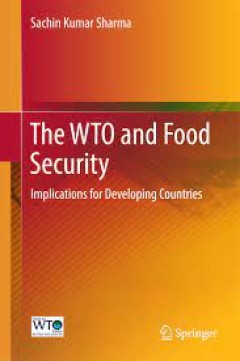
The WTO and Food Security Implications for Developing Countries
This book examines the public stockholding policies of selected developing countries from the perspective of WTO rules and assesses whether the provisions of the Agreement on Agriculture (AoA) could hamper these countries’ efforts to address the challenges of food security. Further, it highlights the need to amend the provisions of the AoA to make WTO rules just and fair for the millions of p…
- Edition
- -
- ISBN/ISSN
- 978-981-10-2179-4
- Collation
- -
- Series Title
- -
- Call Number
- -
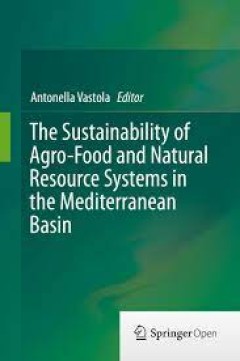
The Sustainability of Agro-Food and Natural Resource Systems in the Mediterra…
This book is focused on the challenges to implement sustainability in diverse contexts such as agribusiness, natural resource systems and new technologies. The experiences made by the researchers of the School of Agricultural, Forestry, Food and Environmental Science (SAFE) of the University of Basilicata offer a wide and multidisciplinary approach to the identification and testing of differ…
- Edition
- -
- ISBN/ISSN
- 978-3-319-16357-4
- Collation
- -
- Series Title
- -
- Call Number
- -
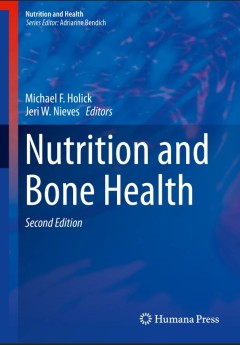
Nutrition and Bone Health
This newly revised edition contains updated versions of all of the topics that were in the first edition and has been substantially expanded with an additional 5 chapters. Each chapter includes information from the most up-to-date research on how nutritional factors can affect bone health, written with an evidence-based focus and complete with comprehensive references for each subject. Nutritio…
- Edition
- 1
- ISBN/ISSN
- 978-1-4939-2000-6
- Collation
- XXXIX, 718
- Series Title
- Nutrition and Health
- Call Number
- -
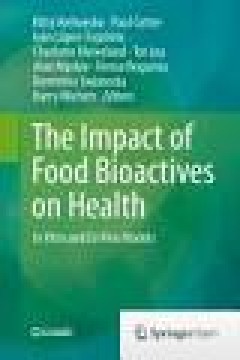
The Impact of Food Bioactives on Health
“Infogest” (Improving Health Properties of Food by Sharing our Knowledge on the Digestive Process) is an EU COST action/network in the domain of Food and Agriculture that will last for 4 years from April 4, 2011. Infogest aims at building an open international network of institutes undertaking multidisciplinary basic research on food digestion gathering scientists from different origins (fo…
- Edition
- 1
- ISBN/ISSN
- 978-3-319-16104-4
- Collation
- XVII, 338, 22 b/w illustrations, 35 illustrations in colour
- Series Title
- The Impact of Food Bioactives on Health
- Call Number
- -

Hyperspectral Imaging Technology in Food and Agriculture
Hyperspectral imaging or imaging spectroscopy is a novel technology for acquiring and analysing an image of a real scene by computers and other devices in order to obtain quantitative information for quality evaluation and process control. Image processing and analysis is the core technique in computer vision. With the continuous development in hardware and software for image processing and ana…
- Edition
- -
- ISBN/ISSN
- 978-1-4939-2835-4
- Collation
- X, 403
- Series Title
- -
- Call Number
- 641.5 HYP

Yellow Alkaline Noodles Processing Technology and Quality Improvement
This Brief will provide an overview of various types of noodles with special emphasis on yellow alkaline noodles. It includes detailed discussions about yellow alkaline noodles including their ingredients, processing technology, the factors affecting their nutritional value and quality. Recent developments and potential ways of improving ingredient quality and enhancing their shelf life are the…
- Edition
- -
- ISBN/ISSN
- 978-3-319-12865-8
- Collation
- -
- Series Title
- -
- Call Number
- -
 Computer Science, Information & General Works
Computer Science, Information & General Works  Philosophy & Psychology
Philosophy & Psychology  Religion
Religion  Social Sciences
Social Sciences  Language
Language  Pure Science
Pure Science  Applied Sciences
Applied Sciences  Art & Recreation
Art & Recreation  Literature
Literature  History & Geography
History & Geography